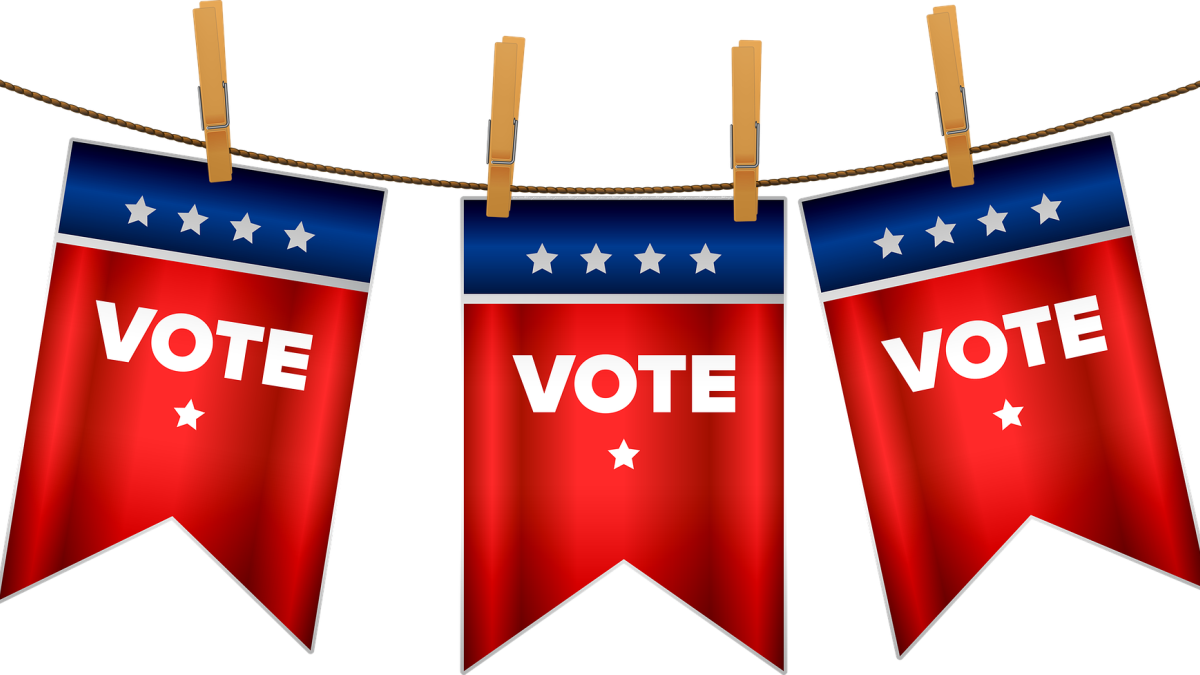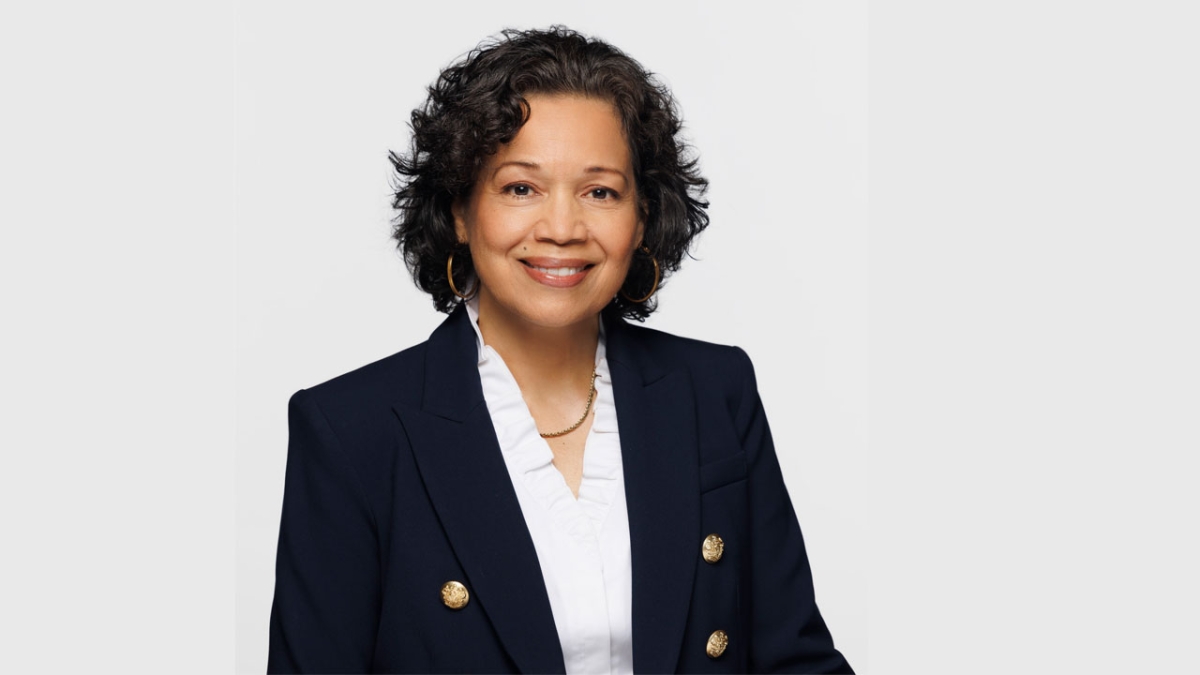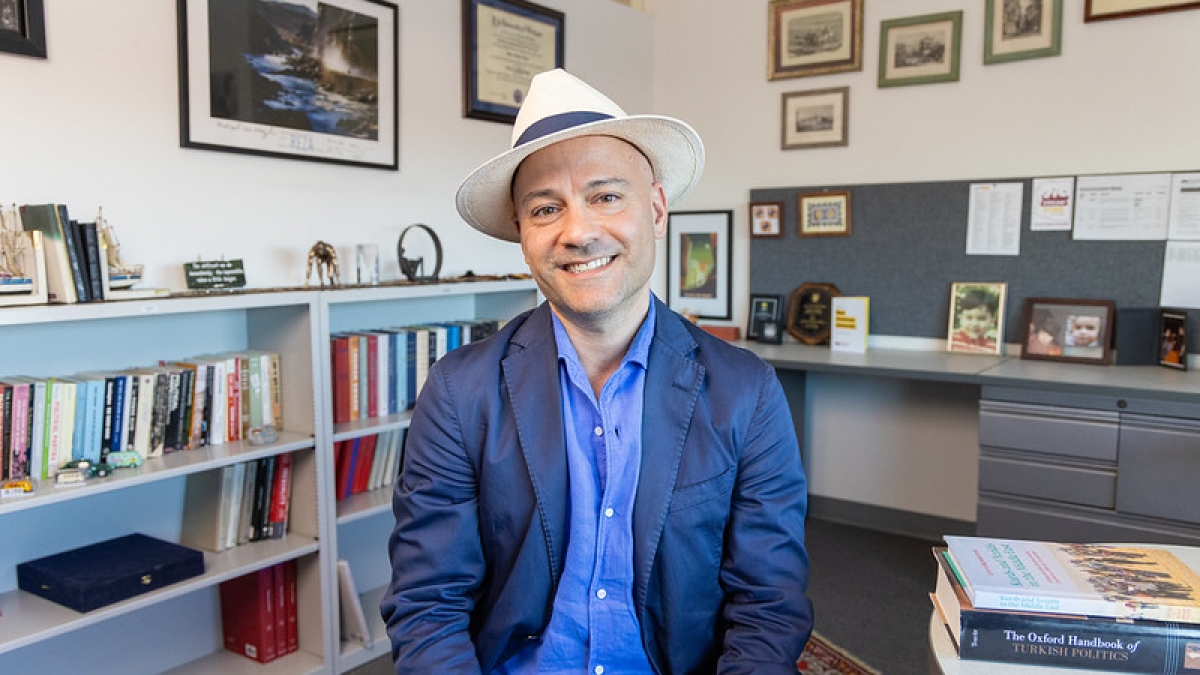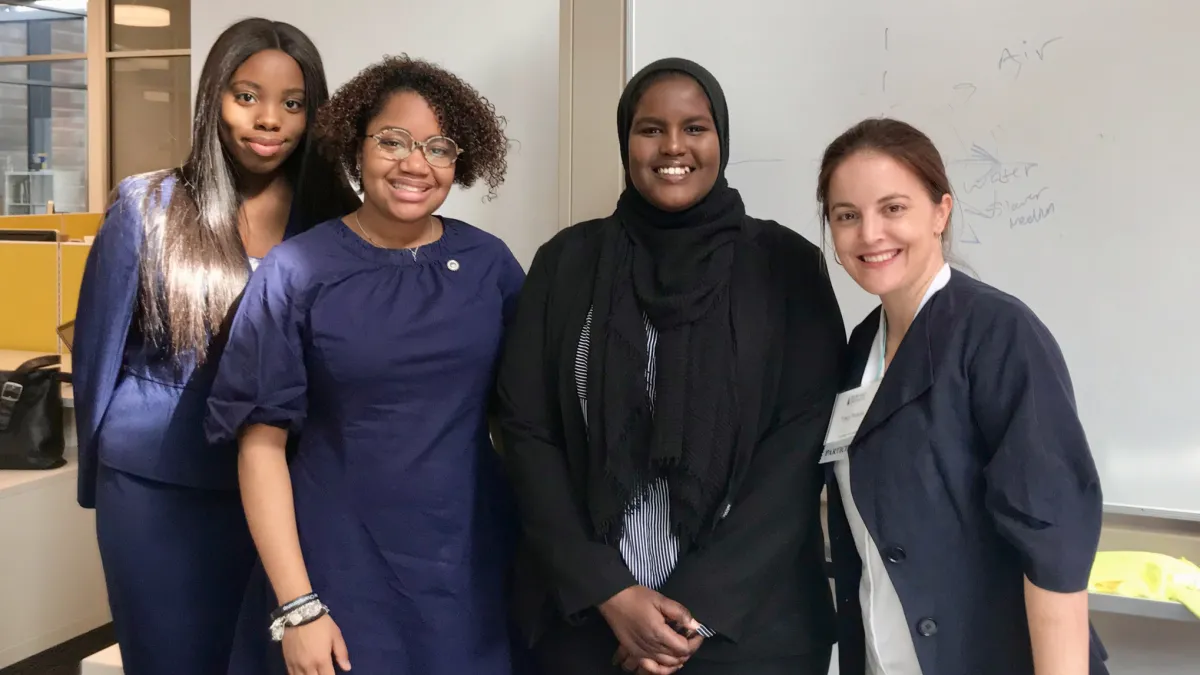Vote early at ASU
Students, employees and the public can cast ballots early on or near all 4 campuses

Editor’s note: This story is being highlighted in ASU Now’s year in review. Read more top stories from 2020.
While the early bird gets the worm, early voters get the confidence that their voice will be heard. At Arizona State University, students, employees and members of the public have the opportunity to cast their ballots with plenty of time to spare, with early voting locations on or near all four campuses.
The following sites are open on Election Day, Nov. 3, in addition to the early voting dates listed below:
Tempe: Sun Devil Fitness Center, Maroon Gym (Gold Gym on Nov. 3 only), Oct. 22–Nov. 3, except Sundays.
Hours: 9 a.m.–7 p.m. Oct. 22–24 and Oct. 26–Oct. 31; 9 a.m.–5 p.m. Nov. 2; 6 a.m.–7 p.m. Nov. 3.
West: Verde Dining Pavilion, Oct. 22–Nov. 3, except Sundays.
Hours are the same as Tempe campus.
Polytechnic: Cooley Ballroom, Oct. 28–Nov. 3, except Sunday, Nov. 1.
Hours: 9 a.m.–7 p.m. Oct. 28–31; 9 a.m.–5 p.m. Nov. 2; 6 a.m.–7 p.m. Nov. 3.
Downtown Phoenix: For students and employees on the Downtown Phoenix campus, there is early voting at Burton Barr Central Library, 1221 N. Central Ave. in Phoenix, Oct. 28–Nov. 3, except Sunday, Nov. 1. Hours are the same as the Polytechnic campus.
Any employee, student or member of the public who are registered voters and residents of Maricopa County can vote at any of these locations. Voters are asked to follow ASU's COVID-19 guidelines: Wear a mask both inside ASU buildings and outside on campus, and maintain a 6-foot distance from others.
There will be free parking near these locations: Tempe — Apache parking structure (45 minutes free parking and then parking validation provided beyond 45 minutes); Polytechnic — Lot 10; and West — the north zone (north side of campus, just off Thunderbird Road), specifically Lot 10. The free parking is valid on the days the voting location is open.
To vote in person, people need to show a valid ID. Get information on what type of identification is accepted.
The youth vote
Before you head to the polls, take a minute to familiarize yourself with some of the history behind the mechanisms of the U.S. presidential election. ASU Now spoke with School of Historical, Philosophical and Religious Studies Lecturer James Hrdlicka to find out more about that, the events that led to the lowering of the voting age and how it enfranchised America’s youth.
Question: What were the events that led to the lowering of the voting age from 21 to 18?
Hrdlicka: When the Constitution was ratified in the 18th century, it left the voting age up to the states, and the traditional age of voting was 21, which reflected a traditional English precedent that that was the age at which you could intelligently exercise the franchise. Of course, at that time, there were a lot of others requirements, such as property requirements, that you had to meet to be able to vote as well. And that stayed the same throughout much of the 19th century until, eventually, things like property requirements were done away with and you began to get this idea of universal manhood suffrageUniversal manhood suffrage is a form of voting rights in which all adult male citizens within a political system are allowed to vote, regardless of income, property, religion or race., followed by the Civil War and the 15th amendment, which said that states could not prohibit men to vote on the basis of race.
So you would think that age would also be a factor that would influence a change in voting requirements, since there were plenty of 18-year-olds fighting in the Civil War, and then later in WWI and WWII, with the argument being that if you're old enough to be drafted and to fight in a war, you ought to be able to vote. But surprisingly, that did not create a huge groundswell on behalf of the states to change the voting age at that time.
Throughout the 20th century, there was some debate on the state level about lowering the voting age. The first one to do it was Georgia in 1943. They lowered it to 18. And then a few states followed: Kentucky lowered it to 18 in 1955; Alaska, in 1956, set it at 19; and Hawaii, in 1959, set it at age 20. Some other states passed referendums on the question of lowering the voting age, but a lot of them failed. That probably has a lot to do with the fact that the people voting on those referendums were over 21. And this is the case for every expansion of voting rights, whether it's about race, or gender or something else; the people deciding on this are not part of the group that is currently disenfranchised.
But with the Vietnam war, there was this situation where you had an especially in-your-face example of young men getting drafted and going off to a war that lacked popular support, and there were a lot of protests surrounding that, which were led by young people. So you could look at that and say, these young people protesting and creating unrest obviously aren't fit to exercise their democratic franchise. Or you could look at that and say, these young people are doing this because they don't have a democratic outlet for that energy, and that’s a legitimate grievance. What ultimately happened was, in 1970, the Voting Rights Act of 1965, which helped guarantee the right to vote for African Americans, was renewed, and at that time, some senators added an amendment to that act granting 18-year-olds the right to vote.
There was much debate over whether that was constitutional because it certainly seemed like the Constitution left the voting age up to the states. So it was immediately challenged in court, and in a very strange a Supreme Court decision, Oregon v. Mitchell, the court divided evenly, with four justices voting against it and four voting in favor of it. And the swing vote, which came from Hugo Black, said that a Congress could regulate the voting age for federal elections, but could not do that for state elections. So what you were faced with was a situation where there was going to be two sets of requirements for voting, where, if you were 18, you could vote for federal officers, but in most states, you wouldn't be able to vote for state officers. And that was just going to be chaos. So the only way to cut through that was to pass a federal constitutional amendment allowing 18-year-olds to vote in all elections, and that's what Congress did in record time with the passing of the 26th Amendment in 1971.
Video by the School of Civic and Economic Thought and Leadership
Q: There have been some grievances from younger generations regarding the Electoral College and its relevance today. What is the history we need to know there?
A: The Constitution was written at a time when the question on the table was, "What do you have to do to create a United States that would be sustainable, that Americans from each individual state would be willing to sign on to?" So features of the American political system sort of derive from that context, and over the centuries, it has manifested in ways that might seem strange.
For example, the 50 states vary dramatically in their populations, but they all get two senators. That's a legacy of that constitutional moment when you needed to make regulations across the board, regardless of state size, because you needed everybody on board. And that's part of why we have the Electoral College. There were proposals at the time for a direct popular vote for a president, but there were questions about whether that was practical. Because if you're in Massachusetts, you might have no idea who a candidate from Virginia is. Or if you lived in a state with smaller population, you might be worried about your voice being diminished in a direct popular vote.
So you got the Electoral College, which was sort of proportional to population, because you take into account how many representatives each state gets, which is assigned according to population. So smaller states get a slightly disproportionate voice, and that's replicated across time and space every time you get a new state, which by nature of it being a new state is going to be smaller in population than existing states. But if you add enough of them up, you get a sort of unbalanced system where smaller states are disproportionately important in terms of the Electoral College. I think, historically, there were reasons people wanted to give a somewhat disproportionate voice to places with smaller populations, and those arguments have less force today. I don’t have a really strong stance about whether the Electoral College should be done away with or not, but I think what defenders of the Electoral College need to recognize is that there are legitimate questions about what we could do to put a system in place that allows all Americans to feel like their voice is heard.
Q: Do you think younger, college-age voters have the power to make an impact on U.S. politics?
A: Certainly. Going back to the '60s, not just in regards to voting rights, but the Vietnam War and the civil rights movement as well, college campuses were a place of organization for young people that made it easier to gather and concentrate their efforts. They still are. So certainly, young students have the power to contribute tons of energy to movements for change, and have done so historically. When you’re in college, you’re at that age where you are thinking of yourself as an adult for the first time, you’re becoming more enlightened and thoughtful, you're considering all these different perspectives. And you want to have your voice heard. And that can be extremely compelling, especially when you’re surrounded by other people having the same experiences and wondering about the same issues.
Top photo courtesy of Pixabay.com.
More Law, journalism and politics

CBS News president to give keynote address at Cronkite School’s spring convocation
Ingrid Ciprián-Matthews, president of CBS News, will serve as the keynote speaker at Arizona State University’s Walter Cronkite School of Journalism and Mass Communication spring 2024 convocation. …

School of Politics and Global Studies director's new book explores mass violence
Why do people commit atrocities and why are certain groups, including religious and ethnic, more vulnerable to large-scale violence? These questions are explored in a new book by Güneş Murat Tezcür…

ASU faculty contributing to improvement of Wikipedia
Many academics have a love-hate relationship with Wikipedia. While the website has information about almost anything you can imagine, the credibility of that information is sometimes suspect. Tracy…